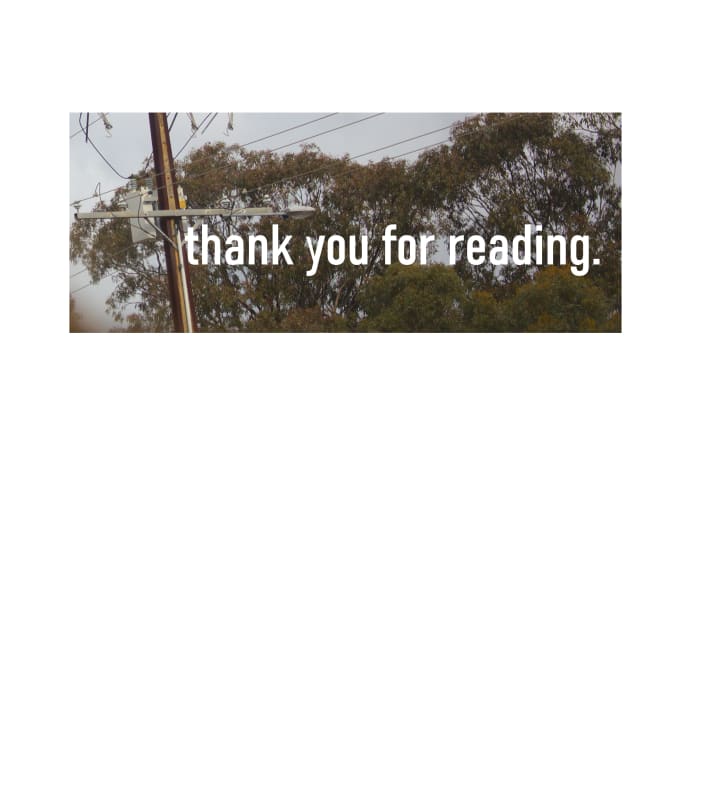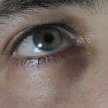The Son Also Rises
A Story

UPON SOME SUMMER SOLSTICE BAKTASIO had been taken by his father to discover his first bullfight.
A sickly, pallid child, Baktasio had spent most his life indoors, underneath the words of others, shaded and oppressed. In wetter seasons his consumption was its worst. For long periods midwinter Baktasio was struck by bouts of sweat, hunger, and vomiting, by silence, fatigue, and the failing of his sight.
Yet these pains and slow descents—much to his father’s disbelief—had never impeded Baktasio an outlook of the world which was brimming with the usual flares of youth and adolescence: if able to speak, the boy saw all objects and events as joyish and exciting, and always, unless asleep or in delirium from sweaty dreams, would he be reaching out his hands to grab these things, some special flicker in his eye.
Never, even in the stormiest and most thunderous of afternoons, had malaise struck the boy with any real intensity.
*
Baktasio and his father stood on the far outskirts of the festival’s central arena. Crowds had amassed into the hundreds. At its densest point—the entrance—people stood closer than shoulder-to-shoulder, and were shoving, pushing, thriving passage to the overcrowded viewing stands. From their moderate vantage, Baktasio had watched them wobble and gesticulate, and had considered them, intuitively, a kind of unitary flesh. They looked a large face of a jellyfish, he had thought: thrashing for escape, though utterly unable to, tangled in a bramble in the sea.
“Mm,” said Baktasio’s father. “I did not think we’d need a ticket.”
“Are there always this many people?” asked Baktasio.
“No.”
His father had taken his hand and cautiously moved the pair a little closer. The crowd of bodies, mostly men and boys, became oppressive in its verticality. Baktasio did not perceive that which was above the torsos and shoulders and legs, seldom even heads, unless they were right next to him. Pressed between the populace, only the very top of his head had been reached by the rays of the sun.
Glancing through the faces his father noticed many foreigners. He caught glimpses of babbling and barbarous languages, and of clothes, shoes, and hair of which he did not know the style.
Instruments were roaring in the distance.
Baktasio’s father then had said, “Wait a moment, hmm,” and stood as high as he could on the edges of his toes. “Yes, this’ll...”
“Tell me.”
Quite suddenly Baktasio’s weightless body was wrenched gently to the air. “Sit yourself on my shoulders. Yes, is that comfortable? Can you see?”
“I see something, yes!” said Baktasio. “Yes.”
Between a weave of lines and bodies, of blocks, rafters, banners, and flags, Baktasio had seen the fragments of a dance of death: the writhing, jumping colossus – its horns and head, though nothing of its hooves.
“Oh, yes,” he said. “Yes I can almost see, if only slightly higher, father. The bull is black you know.”
Next instant, Baktasio’s father had cupped his hands into his son’s armpits, and, gentle though a little jerky, raised him higher in the sky.
A perfect view of the arena had been attained. Men in elegant dress and blades and spears of drunken fervour were calamitous, it was a tangle of a spectacle. Baktasio glanced upon the pupil of this great maelstrom—the gentle, monstrous bull—which, without a sound, made charged attempts and stops against this spinning insurmountable. Also there were horses.
A sickness then had hit Baktasio.
It took only a few seconds for the pain of the jabs in his armpits to become unbearable, surely bringing forth bruises for tomorrow, at which point he had pleaded loosening, and was craned into his seat.
His father had complied. “I did not hurt you did I?”
“No,” replied Baktasio. “No. You did not.”
*
The size and brackish features of the crowd had seemed to be intensifying. Some were enraged that their entrance still was not accomplished; some were drunk from liquor and elation; some were seeking fights and others were attaining them.
The sounds of bottles being tossed and smashed rendered a worrisome face upon the father of Baktasio. “Can you still see?” he asked.
“Not particularly.”
“Perhaps it’s time we—”
“No! I’ve an idea, lift me for that tree.”
Baktasio pointed. A few metres from them was a tall, courageous, mostly leaveless tree. Two boys, larger and older than Baktasio, had already found their vantage there, perched next to each other upon a single, sturdy branch. They were swinging their legs, laughing and jostling, and on occasion also pointing fingers.
“I, don’t know.”
“It’s perfectly safe,” Baktasio replied. For a moment neither spoke beneath the squawking crowd. “Please.”
“Okay,” his father then conceded. “But a different branch. I don’t want you to sit with those other boys and I don’t want you sharing.” He looked at his son’s arms. “The branches are, brittle.”
His father hoisted him up. Baktasio gripped a solitary branch, and, receiving a big push on the butt, climbed up with arms and legs. Then he had sat, steadied himself, and scrutinised the sport.
Baktasio watched the fight and his father watched Baktasio.
The boy was now robust. A small, hidden smile appeared, inspired by his child’s vigour. Never in his short years had Baktasio had the health he showed today. The sun had been an influence.
*
Next instant, screaming had occurred.
Far from its usual fashion of that day’s festivities—frenzy, passion, play—these hollowed shrieks set off like dynamite amongst the crowd. Everyone standing was moving now. The three boys in the tree most clearly grasped the unfolding of events, and chief among them was Baktasio. He analysed the scene so comprehensively as to perceive it as slowing down time.
Elsewhere his father scrambled to raise himself up the trunk. His hands were hit and smashed continuously by the rushing, pushing bodies – what’s called a crunch, and sounded like it. The instruments had stopped and their absence punctuated the panicked calls of all the countless people.
The entryway which earlier had been dense as a thicket seldom had a living soul; with restless, commanding ease, the beast trotted out and appeared at the entryway; the bull, whose head was bigger than Baktasio, was bleeding at its side. Whose blood it was he did not know.
Something vaguely resembling sheets of soiled washing had dangled from its horn. It glanced upon the stragglers of the crowd, the tripping, tumbling ticket holders, the impoverished and the rich.
Then the lottery was won.
One man was turned particular by chance among the mob.
Baktasio had watched the bull descend upon the man; he was shocked and elated by the speed of the enormous beast, which was not scaled down in any way proportionate to its mass. Baktasio, his father, the two other boys in the tree, and several other people flinched.
It rended the particular with its big right horn. His back was penetrated, although the spine was missed.
All had dispersed from the small square of foliage – only one had committed to climbing the tree, the father of Baktasio. He resembled a cat, and made several short vertical hops to quickly reach level with the branches and boys. Using only his left arm he fixed his post, and using his right he reached out to secure Baktasio.
“Children all of you do not move, stay in the tree,” he said.
Baktasio could not look away. He stared upon the mottled, flubbish flesh – an utter fascination. Several times his father tried to cover his eyes and several times he failed; Baktasio ducked and weaved, almost gracious in his smoothness, mouth agape and starry-eyed.
Some men approached the bull but none had stole attention. Then they backed away from it. Again it thrust its horn into the semi-conscious man, and tossed him out of gravity as the human flicks an insect.
There was no intervening force; then Baktasio had made one.
Baktasio looked at his father, and smiled. Baktasio then spoke:
“That one should die in weakness is the tragedy.”
*
He jumped from the tree and landed flatly on his feet. He looked a member of the law; an athlete, diplomat and doctor, at once.
The bull had noticed his immensity.
His father had screamed and was screaming, but the name and words like waves along a beach could not be distinguished.
His father had leapt and was leaping from the tree and had reacted as fast as was possible, yet he moves in slow motion in the peripheral of the field.
The bull had clapped itself several times against the ground. It exhaled from the nose. One final time Baktasio had looked at it.
Its head was lowered; although its eyes persist.

This story was submitted to Vocal's (SFS5) Challenge: Raging Bull.
The banner image features two works:
‘Bull fight in an Andalusian village, Spain.’ An engraving by Sir Lionel Lindsay, 1922. Courtesy of the National Library of Australia: https://nla.gov.au:443/tarkine/nla.obj-152564466
&
The Recognitions. A novel by William Gaddis, 1955. With a photograph of William Gaddis, supplied from the estate to Dalkey Archive & edited by Mikhail Iliatov. 2015.
Thank you for reading. If it was worth your time, tips of any size contribute to my living, and are greatly appreciated.
If you enjoyed this story but do not wish to tip, sharing it also makes a difference, and pressing the heart hits an algorithm.
with love
- T VV
About the Creator
Taylor vvestmacott
Taylor is a screenwriter and novelist who lives and works on Kaurna land.
https://linktr.ee/taylorvvestmacott






Comments
There are no comments for this story
Be the first to respond and start the conversation.